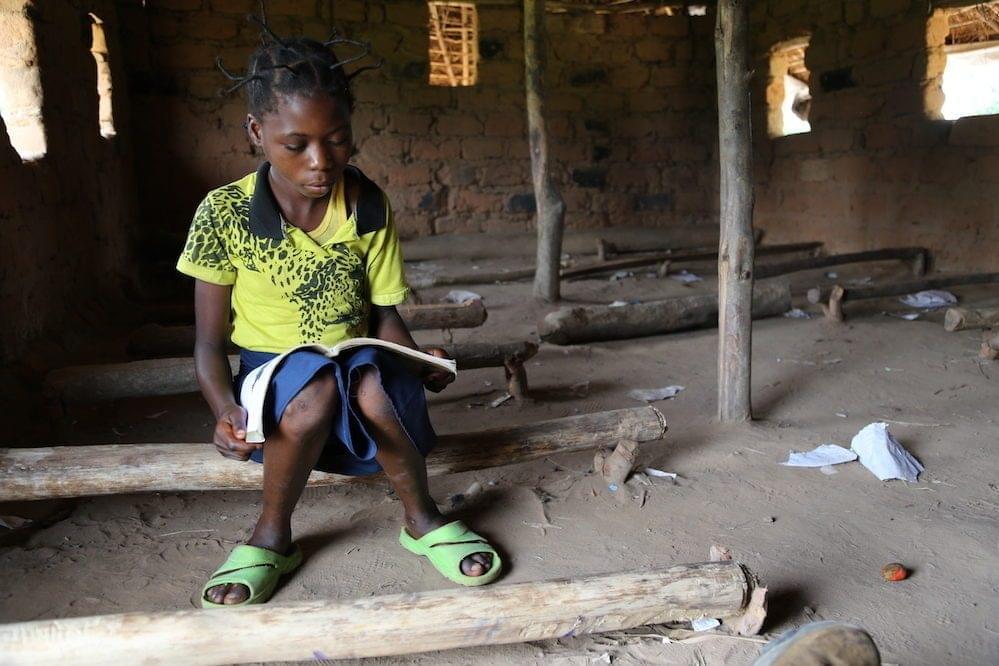Education Worldwide

Access to education is Article 26 of the United Nations Declaration of Human Rights, which states that:
‘Everyone has the right to education. Education shall be free at least in the elementary and fundamental stages. Education shall be directed to the full development of the human personality and to the strengthening of respect for human rights and fundamental freedoms.’
All children need to access education regardless of where they are in the world. This means ensuring equal opportunities for both boys and girls. It is also important that children spend enough time in education to enable them to play a full part in the world of the future.
Education opens the door to a better life and allows us to participate in a working and social environment.
If you educate a woman, you also educate a family and so communities as a whole benefit from investment in education.
n 2018, around 258 million children and young people worldwide were out of school. In March 2018, more than half of girls of primary age were not in school in Eritrea, Equatorial Guinea, Liberia and South Sudan.
As a whole, in Sub-Saharan Africa 24% of all girls and 18% of boys were not in school. Schools here struggle to provide basic resources.
Less than half of schools can provide clean drinking water, electricity, computers and the Internet. In these conditions, it is not surprising that delivering quality education or any education at all is extremely difficult.

Education reflects the society delivering skills and knowledge and it shapes that society in return. Settled communities are important if quality education is to be achieved. Where children are involved in large scale migration, they lack stable learning conditions. These children can fall behind with their education. Day to day survival and long, dangerous journeys take the place of classroom learning as their routine. Even inadequate housing may cause difficulties for children, preventing the improvement of educational standards.
Many children live in areas of conflict, often participating in warfare.
The problem of child soldiers has been of growing concern to the international community.
In South Sudan alone, at least 19,000 children under the age of 18 have been involved in conflict. Away from Africa, growing numbers of children are drawn into the war situations of the Middle East.

Even children returning from conflict are of great concern. In 2017, around 10,000 children were released from the armed forces in the Central African Republic, Colombia, Congo, Myanmar, Nigeria, Somalia and South Sudan.
Returning children present a problem for countries because they are difficult to integrate. Girls are especially vulnerable and often communities do not know how to cope with these damaged individuals who have grown up too quickly.
Education is vital at every age of childhood, into early adulthood and beyond.
Groups such as Boko Haram in Nigeria and Al-Shabab in Somalia are violently opposed to learning, viewing it as a western influence which they regard with suspicion. The ignorance of young men who are fighters is passed on in the determination to perpetuate ignorance through their own fear of knowledge.
In many ways, knowledge is power. It enables opposition and drives progress. The Luddites of England at the beginning of the nineteenth century broke up machinery in cotton and woollen mills because it threatened their jobs. A similar protest led to the Captain Swing riots of 1830, when new threshing machines threatened rural employment.
Education helps to change society, but ignorance sometimes fears it and holds it back. Change can be challenging and education takes people forward.
Lack of education can be used as a form of control. During the apartheid era in South Africa, the Bantu Education Act (1953) was passed to ensure that black children had restricted educational opportunities so that they would only fill limited roles in society.
Children were given equality of opportunity with the new government in 1994.

In 2020, children in many countries missed school because of the world pandemic. For older children exams were disrupted, causing difficulties for many. Younger children slipped back with reading, writing and number skills. Even socialising, which is part of the school experience, declined. Most children returned to school later in the year after protective measures were put in place. However, there is a concern for the future of educational opportunities if this happens again.
As a global village, we hope that the world values its children enough to protect them and provide them with education as a tool for life. They are the future and we as a planet cannot prosper without equipping them for the challenges that lie ahead.

Responses